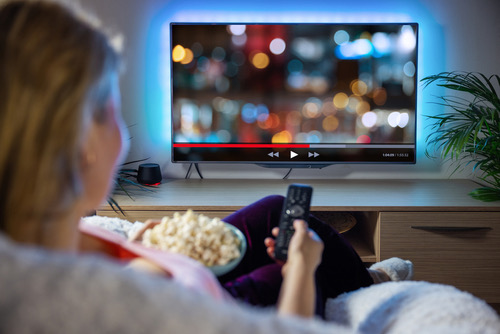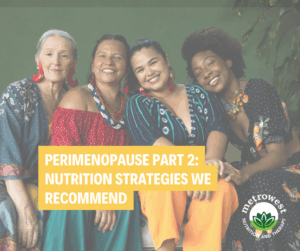
Why I Won’t Be Watching Oprah’s Menopause Special
There’s a lot of conversation in diet culture around menopause weight gain. And someone who’s infamously been the victim of body shaming as her weight went up and down is Oprah—so when I first heard she was doing a prime-time special on menopause, I was intrigued but skeptical.
Menopause is a topic long overdue for serious, public-facing conversation, and few people have the power to bring attention to women’s health like Oprah. But the more I learned, the more uneasy I felt. And now, I’ve made my decision: I won’t be watching.
Here’s why.
Oprah’s Endorsement of Ozempic Undermines the Message
Let’s be honest: Oprah’s voice carries enormous cultural weight. When she champions something, people listen—and companies profit. That’s exactly why her recent public embrace of medications like Ozempic for weight loss is so troubling.
Ozempic, a drug intended for managing diabetes, has exploded in popularity for its off-label use as a weight-loss aid. And Oprah’s glowing praise of it—framed as a way to “finally take control” of weight—doesn’t just normalize its use; it glorifies it.
In doing so, she sends a damaging message: that weight loss is a moral imperative and that bodies are problems to be fixed. It’s a message many of us have been trying for years to unlearn.
Weight-Centric Messaging Is Not the Menopause Conversation We Need
Menopause affects every woman differently, but one universal truth is that it’s not just about hot flashes and night sweats—it’s about identity, aging, visibility, and yes, how we feel in our bodies.
But centering weight loss in that conversation (as Oprah has a long history of doing) reduces menopause to yet another crisis of appearance. Learning that one of the guests on the show is a prominent doctor and author, Mary Clare, who shares Oprah’s weight-centric viewpoint, further supported my decision.
We don’t need another narrative that suggests weight gain is the biggest “problem” of menopause. We need honest talk about hormones, mental health, sex, sleep, cardiovascular health, bone density, and the emotional shifts that come with this transition. Space for nuance, not another makeover story with a weight-loss plot twist.
Wellness Doesn’t Equal Thinness
There’s a deep hypocrisy in trying to frame a show as a celebration of women’s health and empowerment while reinforcing a standard that equates health with thinness. Wellness is about agency, knowledge, support, and access—not shrinking ourselves.
For many women, menopause can be a time of liberation—a breaking away from decades of dieting culture, body shame, and the exhausting chase for societal approval. But when someone with Oprah’s influence promotes pharmaceuticals for weight control, that liberation gets hijacked by the same old narrative: smaller is better, always.
The Harm Is Real
It’s not just about being offended or “too sensitive.” The impact of weight stigma is real. It leads to poorer health outcomes, delayed care, and psychological distress. And it disproportionately affects women, especially women of color, queer women, disabled women—anyone who doesn’t fit into the narrow mold of mainstream beauty ideals.
When Oprah uses her platform to perpetuate weight-centric ideals, it legitimizes that stigma—even if unintentionally.
We Deserve Better
Women in midlife deserve more than a celebrity special that subtly (or not so subtly) tells them they need to lose weight to be okay. We deserve open conversations that respect our intelligence, our complexity, and our autonomy. We deserve a vision of health that doesn’t require us to medicate ourselves thin to feel worthy.
So no, I won’t be watching the Oprah menopause special. Not because I don’t care about menopause—I care deeply. But I want that conversation led by people who understand that empowerment doesn’t come from weight loss, and health isn’t found in a number on the scale or a celebrity-endorsed drug.
We need a new narrative. And it starts by turning the channel.



